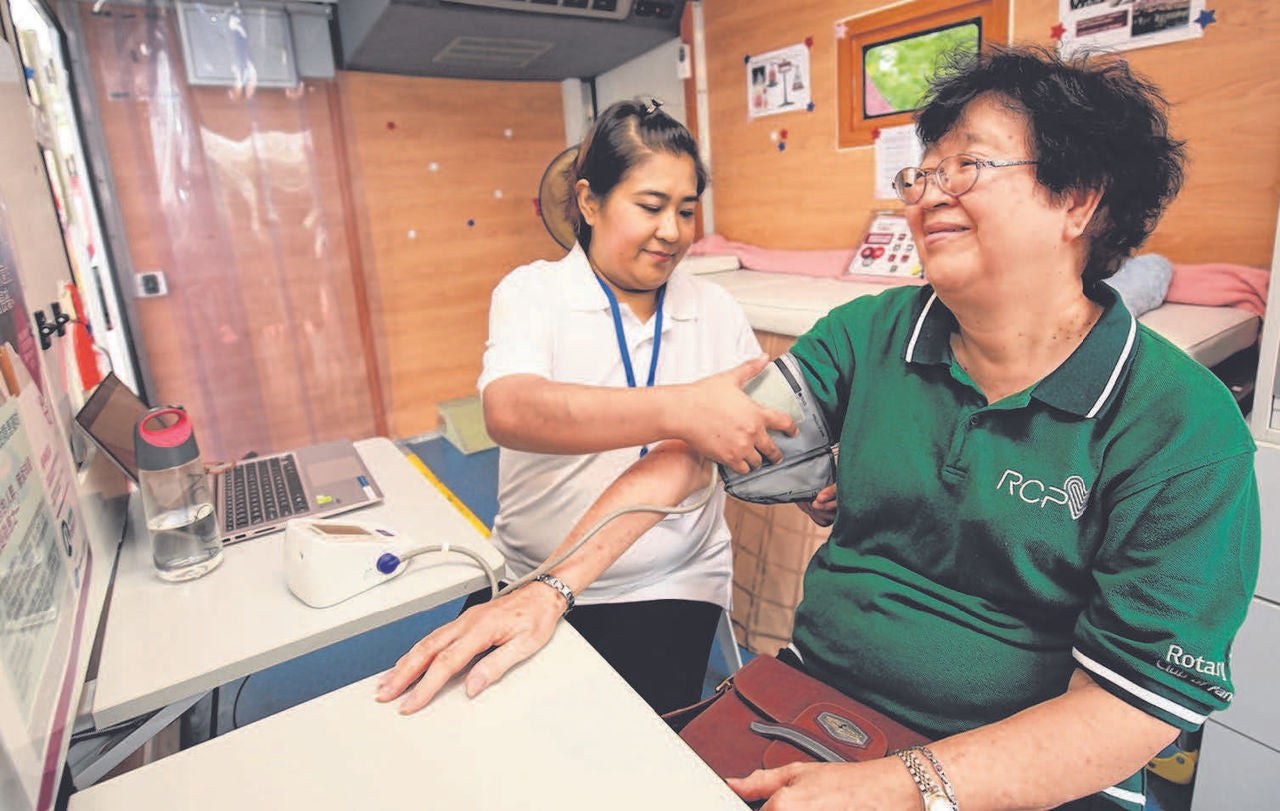
Mobile eye clinic provides eye screening for the underprivileged groups
The underprivileged local people may screen their eyes free of charge in a bus traveling within the communities from the first quarter of next year. Patients in need may receive referral letters and promptly go to specialist clinics to treat eye diseases.
The Singapore National Eye Centre announced the launch of a blue VisionSave Mobile Eye Bus the day before to allow eye screening for vulnerable groups who are struggling to find their own way, especially elderly living alone and nursing homes. Dr. Amy Khor, Senior Minister of Ministry of Health, is a guest of the ceremony.
In an interview with Lianhe Zaobao, clinical director of VisionSaveACCESS Dr Marus Ang of Singapore National Eye Centre said that buses will first go to locations near the Eye Center such as Chinatown, Redhill and Jalan Besar in the initial stage and then gradually expand perimeters, to all parts of the island.
Dr Marcus Ang said that the service provided by this bus differs from the general community eye examination in that there are ophthalmologists and family doctors at the Social Security Assistance Program (CHAS) Clinic. Ophthalmologists can do eye examinations for the general public. If people need further tests, CHAS clinic doctors will write a referral letter to the needy people at the scene and arrange them to go to specialist clinics for treatment to improve the referral rate of follow-up.
Dr Marcus Ang pointed out that if they simply tell patients what diseases they have, ask their patients to visit polyclinics for follow-up treatment to be referred specialist clinics, they usually will not refer back. He said that many elderly people who lives alone, who are visually impaired will be more likely to stay at home, further deteriorating their eye diseases. "Their eyes are no longer clear. How can motivation be given for referral? We have to help them get out of this vicious circle."
According to the National Eye Centre survey, the referral rate after eye examination in the general community is about 28%. Simply simplifying the referral procedure for patients helps to increase the referral rate to 76%.
In addition to streamlining procedures, Dr Marcus Ang said the National Eye Centre also used its donation from VisionSave, its charitable department, to help vulnerable groups to pay for their first visit to specialist clinics without having to pay for them, along with transport and lunch costs. The department also arranges volunteers to assist patients who do not understand the procedure.
Yan Chiu (60 years old), who was single and living alone, had cataracts for many years but did not know how to seek medical treatment. Then she was interviewed by the staff of National Eye Centre before surgery to remove cataracts. She said her left eye was clearly seen after having undergone surgery and is currently awaiting the right eye surgery.
The National Eye Center held a carnival on the day before yesterday to teach people how to protect their eyes through interactive activities. People over the age of 55 with diabetes who have not sought medical treatment from ophthalmologists also receive a free eye exam.
Contributed by














 Get it on Google Play
Get it on Google Play